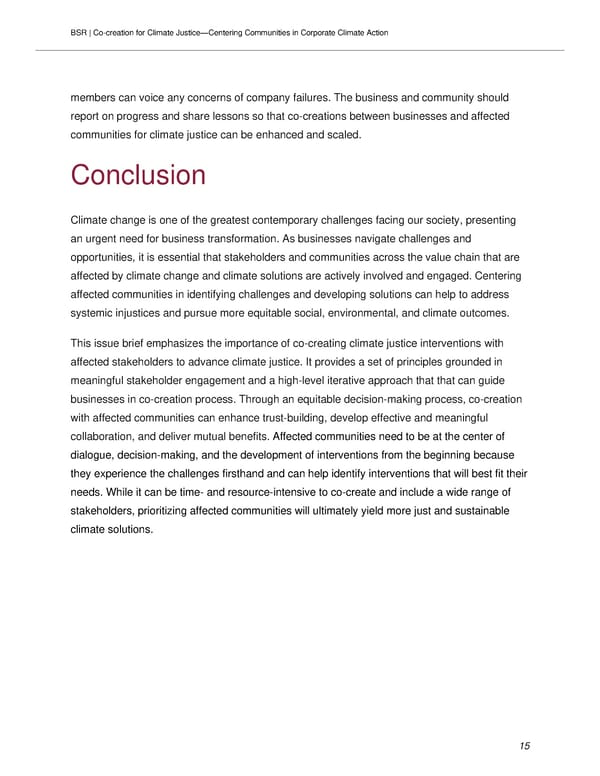BSR | Co-creation for Climate Justice—Centering Communities in Corporate Climate Action members can voice any concerns of company failures. The business and community should report on progress and share lessons so that co-creations between businesses and affected communities for climate justice can be enhanced and scaled. Conclusion Climate change is one of the greatest contemporary challenges facing our society, presenting an urgent need for business transformation. As businesses navigate challenges and opportunities, it is essential that stakeholders and communities across the value chain that are affected by climate change and climate solutions are actively involved and engaged. Centering affected communities in identifying challenges and developing solutions can help to address systemic injustices and pursue more equitable social, environmental, and climate outcomes. This issue brief emphasizes the importance of co-creating climate justice interventions with affected stakeholders to advance climate justice. It provides a set of principles grounded in meaningful stakeholder engagement and a high-level iterative approach that that can guide businesses in co-creation process. Through an equitable decision-making process, co-creation with affected communities can enhance trust-building, develop effective and meaningful collaboration, and deliver mutual benefits. Affected communities need to be at the center of dialogue, decision-making, and the development of interventions from the beginning because they experience the challenges firsthand and can help identify interventions that will best fit their needs. While it can be time- and resource-intensive to co-create and include a wide range of stakeholders, prioritizing affected communities will ultimately yield more just and sustainable climate solutions. 15
 Co-creating Climate Justice Interventions Between Business and Communities Page 14 Page 16
Co-creating Climate Justice Interventions Between Business and Communities Page 14 Page 16